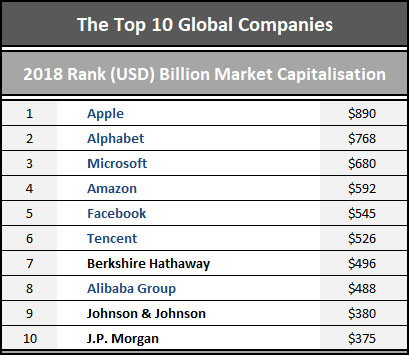
“There are decades where nothing happens; and there are weeks where decades happen” (Vladimir Lenin, who would have known!)
In a recent seminar, the President of Microsoft, Brad Smith, gave his thoughts on what is unfolding in business due to COVID-19, plus how he saw the post-pandemic world.
Fasten your seatbelts!
Ransomware and hacking rose to high levels in 2019 and there is no sign this is abating. For example, private patient data is being hacked in U.S. hospitals with demands that unless a ransom is paid, the data will be put in the public domain.
As many people now work from home, so vulnerability to being hacked is rising. People should “strap on their seatbelts” and take precautions – a two-pronged approach is often used now and is effective in containing the vast majority of hackers. For example, using a password and then getting an SMS to use a PIN to activate a PC.
Up your digital skills
Working from home will almost certainly continue to be widely used after the pandemic is over, so it will pay long term dividends for staff to hone their digital skills now.
These two points may seem obvious, yet in the rush to swiftly react to COVID-19, they are often being overlooked.
Keep your company culture alive
Spending most of your day looking at a screen is not conducive to fostering the business’s culture. Frequent news on how people in the company are doing plus the company’s performance and human interest stories such as how the company is helping its staff and communities in alleviating the plight of those adversely affected by the Coronavirus will help to lift the spirits of your staff.
The future of offices
The trend of working from home has been successful and Smith expects some form of hybrid between employees at the office and working from home to emerge in the post-pandemic years. The saving in travel time resulting in increased productivity plus a greener environment from less travel ensure that working from home will be a feature in future business. But there will still always be a need in many businesses for an office. Let’s not forget that man is a social animal and requires human contact.
Upheavals, history and massive changes
Great events have long lasting impacts on future generations. The Second World War transformed air travel from a small elite industry into a mass transport business which led to massive growth in airlines and the tourism sector. It also gave impetus to globalisation.
Another trend from the Second World War that has had a lasting effect was the harnessing of research at universities by governments which led to technological breakthroughs.
With the aftermath of COVID-19, Smith expects that online business will be fully embedded in businesses due to the innovation surge which has followed the emergence of Coronavirus.
Another important feature has been the rapid assimilation of data to help governments quickly understand and fight COVID-19. As the stakes in this pandemic are extremely high, the emphasis has been on providing fact-based information which is transparent and can be interrogated. The search for a vaccine illustrates this – usually it takes up to ten years to find a vaccine but there is hope that this can be reduced to ten months and be ready before the end of the year.
6 principles to fight fake news
A bugbear for all countries that just seems to keep growing is “fake news” and the growing amount of false information on the internet. Smith says that disinformation spreaders have found it difficult to fight the massive amount of scientific data that has been put out in fighting COVID-19. Microsoft now uses six principles when developing software to support open government, which are:
- Fairness – all people will be treated fairly.
- Transparency – the system will be fully documented, and capabilities and limitations will be set out.
- Accountability – technology can have a significant impact on people and an appropriate level of human control will be exercised to prevent adverse consequences from occurring.
- Non-discriminatory – no unlawful discrimination will be allowed.
- Notice and Consent – people subject to the technology must consent to its use.
- Lawful Surveillance – Microsoft will campaign for people’s rights to not be infringed by use of software.
Smith said if these principles can be accepted as an industry standard, it will promote openness which will reduce the impact of “fake news”.
There has been limited application for Artificial Intelligence (AI) in combating the virus, but it has been useful for example in diagnosing whether a caller needs to come into a clinic or hospital and take a coronavirus test. This allows medical staff to focus on helping the confirmed sick. AI is also being used to predict how severely affected each patient who tests positive will be and it helps tailor the treatment the person should undergo.
Lastly, and very importantly, it has shown how important co-operation is in finding answers to COVID-19. Without multilateral and bilateral approaches, it will take longer to find solutions.
Smith said technology can be used either as a weapon or a helpful tool. It is up to governments and civil societies to ensure that it is used as the latter.











